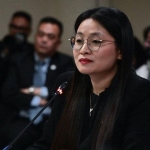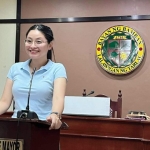
Once-honored Bamban, Tarlac, Philippines’s mayor, Alice Guo, has been caught in a scandal regarding her actual identity. Rumor had it that Guo, a national of the Philippines, might be Chinese born. These assertions have muddled her political life and spurred once more discussions about national identity.
Examining the “Real” Alice Guo untangled web of evidence
The dispute emerged from conflicts in Guo’s memoirs. She claimed to be the housekeeper’s love child of a Chinese businessman from Manila. But documents provided by Senator Sherwin Gatchalian revealed Guo might possibly be Guo Hua Ping, a Chinese woman who arrived in the Philippines as a small girl. Later research revealed differences in residence petitions and birth certificates. Matching fingerprints, the National Bureau of Investigation (NBI) even verified Mayor Guo and Guo Hua Ping. This complex system of data elements implies Guo perhaps constructing her identity to acquire political influence in the Philippines.
Political and legal ramifications generate fallout and uncertainty
The exposing started a domino effect. Guo’s certificate of live birth has been attempted to be invalidated by the Philippine Statistics Authority (PSA), hence possibly losing her citizenship. Given her eligibility is now under dispute, this legal move could result in her being booted from office. Politically, the debate has undermined public confidence and harmed her brand. Long shadow over her mayorial performance, both supporters and detractors are left debating the implications of this argument. Once hailed, her successes are now under close scrutiny through the prism of this identification question, therefore endangering her political future.
From Identity, Politics, and National Security, the Greater View
Regarding political responsibility, national identity, and probable security issues, the Alice Guo case raises several interesting issues. It emphasizes the significance of appreciating immigration laws and confirming public servant credentials. The result of this case will be much under observation and influence future political openness as well as national security policies. The case emphasizes the need of thorough screening procedures to guarantee that those in positions of authority are who they say they are and possess the legitimate right to occupy. The argument also raises questions on the importance of maintaining democratic processes against such incursions and the susceptibility of political systems to manipulation.
Keep Reading
Future Unknown: Awaiting Correctives
Right now, June 27, 2024, the subject of discussion is still unresolved. Legal actions are under process; Mayor Guo has not publicly replied to the allegations. The public is yearning a definite response on her actual identity and the implications that would surround it. Until then, the people of Bamban and the larger political scene of the Philippines remain in a state of uncertainty since the outcome of this identity crisis is still under development. The silence from Guo and the ongoing court battles create suspense and many people wonder about the real narrative underlying her rise to power.
The developing narrative of Alice Guo truly reminds us of the complexity and the dangers hiding within political structures. Not only for the benefit of the government but also for the confidence and stability of the areas they cover, therefore underlining the need of integrity and openness. Everyone will be focused on the political and legal systems charged with handling an unparalleled catastrophe as the inquiry progresses. This event reminds us very much of the need of openness, responsibility, and the exhaustive screening of candidates for public office so that leaders actually reflect the people they are intended to serve.


























